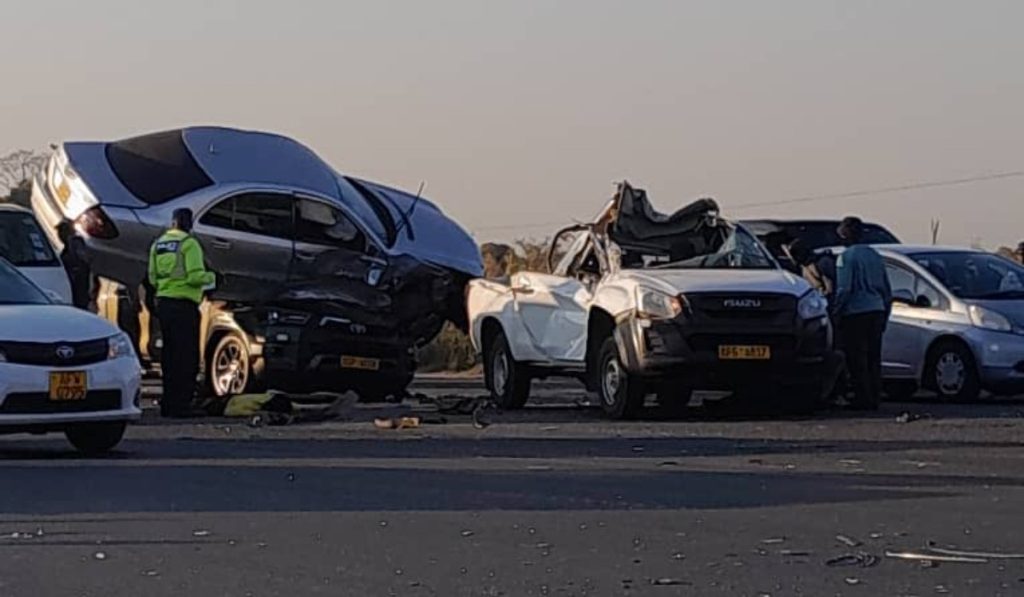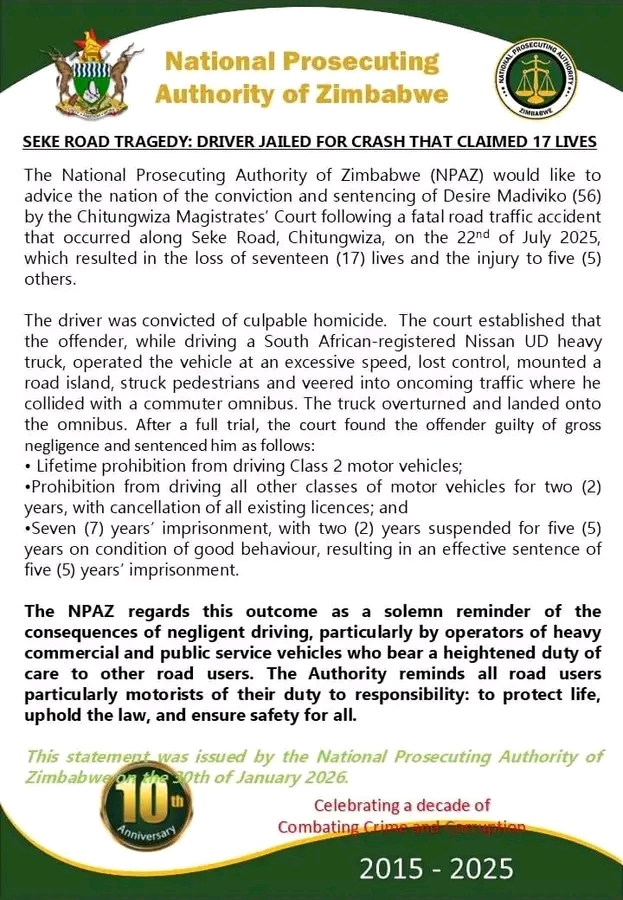
An Accident scene captured in Harare recently (file pic)
By George Swarei
In an age where social media dominates information sharing, there is an unsettling trend of people posting graphic accident scenes online. This practice raises ethical, cultural, and psychological issues, particularly in Zimbabwe, where families often discover their loved ones’ tragic fates through these public posts. For many, these accidents represent not only news but deep personal losses: the death of a mother, father, sister, brother, or breadwinner—the pillar of a family’s hopes and dreams.
Respect for the dead and injured is a deeply rooted value in Zimbabwean culture. However, this value is increasingly compromised by people who view accident scenes as an opportunity to break news and attract online engagement. Recent tragic incidents, like the Harare-Bindura Highway crash that claimed five lives, have shown how people capture and share footage without considering the cultural implications or the privacy of the victims. Such posts often disregard the human dignity of individuals involved, reducing them to mere content for social media feeds.
For families, these graphic posts are not just an invasion of privacy; they add to their emotional suffering. As police spokesperson Commissioner Paul Nyathi emphasized, “It’s unfortunate and traumatizing for families to learn about their loved ones’ deaths through social media.” For the families left behind, each post is a stark reminder of their personal loss and the void left by a family member who may have been their primary provider and a source of hope.
The unexpected and graphic nature of accident images can have lasting effects on loved ones, especially when the deceased is a breadwinner—the person whose hard work provided stability and security for the family. In some communities, people have learned of the loss of their mothers, fathers, or siblings through footage shared by strangers, multiplying the shock and grief for families. Such insensitive sharing has been criticized by local authorities and families alike, who stress the importance of letting relatives process their grief without the intrusion of graphic social media posts.
For some, these posts serve as a cruel public announcement of the worst day of their lives. Internationally, police departments have urged people to consider the far-reaching impact of sharing sensitive footage online, warning that it amplifies the trauma for grieving families. As a U.K. police spokesperson stated, “We advise the public to think twice before sharing sensitive material, as it can lead to unintended trauma and privacy violations”.
The impact of these images goes beyond the immediate families; children, the elderly, and individuals with sensitive dispositions are also affected. For children, exposure to violent or traumatic images can cause anxiety, sleep issues, and a lasting sense of fear, while the elderly or those with nervous dispositions may experience increased distress and anxiety. The indiscriminate sharing of these scenes creates a ripple effect, harming not only those directly involved but also the broader community.
This trend of sharing accident footage is a global issue, with law enforcement agencies in many countries echoing similar concerns. In the United States, police have advocated for stricter regulations on sharing graphic content. In Zimbabwe, the Zimbabwe Republic Police has been vocal about the need for respect and restraint. These agencies call for a balance between raising awareness and respecting the dignity of those involved, especially given the traumatic effects on families and the public. This ethical balance underscores the importance of human decency in our digital behaviors.
As the digital age evolves, so too must our approach to social media. Public awareness campaigns and education on the ethics of sharing sensitive content could help curb this trend. It is essential to respect the privacy and dignity of accident victims and their families, remembering that these scenes of tragedy and loss are not just “news” but deeply personal experiences for those who have lost their loved ones.

